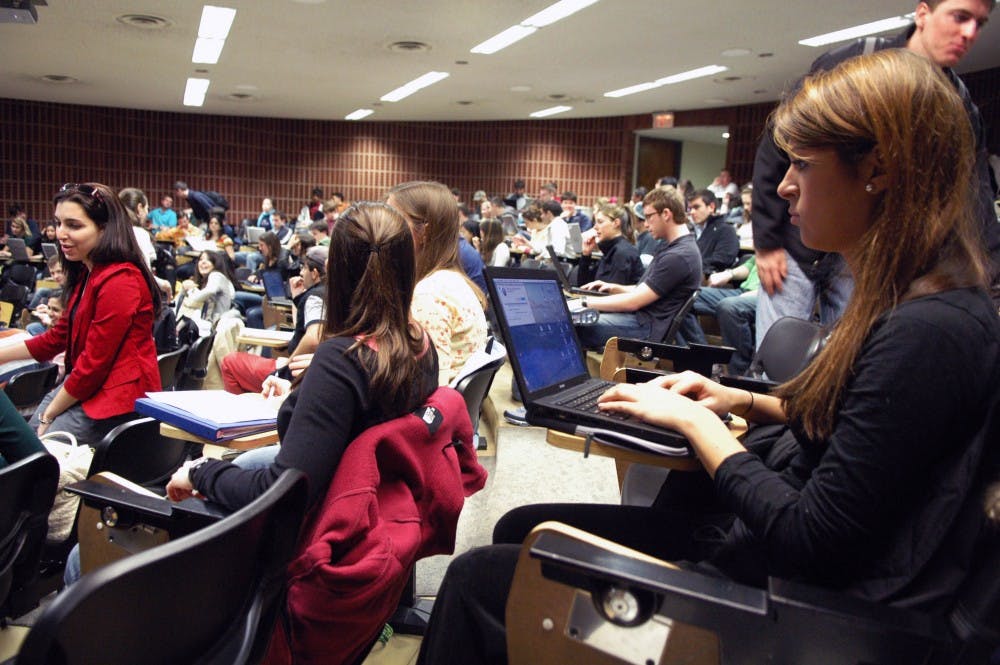Freedom of speech does not come automatically — one committee works to make sure that everyone's voices are heard at Penn.
Penn’s Committee on Open Expression, which aims to improve communication across campus, is currently working closely with the Undergraduate Assembly to promote free expression in the classroom.
The UA will collect data this year from the student body to analyze current perceptions of free speech in the learning environment.
“Right now, we are letting students know that we are here to heed their complaints regarding infringement upon open and free expression. If we see a concerning trend arise amongst these complaints, we will take steps to examine possible solutions," said College junior and UA Social Justice committee director Jane Meyer, who represents the UA on the committee. She is joined by faculty members and both undergraduate and graduate student representatives.
The committee hopes to publish student comments about open expression on Penn Course Review, a website that publishes student evaluations of professors and classes.
“Penn Course Review will provide useful information,” Penn Law Professor and Chair of the Committee on Open Expression Stephanos Bibas said. “When student pick their classes, they understand what they're getting into, and if there is a particular problem with a particular professor, the student will know how the professor treats this topic.”
Bibas shared his own experience teaching at Penn's Law School and said that compromised free speech is an issue typically associated with classes in particular areas.
“That’s not going to be an issue in some theoretical physics class,” Bibas said, “but in some of the politics classes, absolutely, controversial issues need to come out from all different sides.”
Bibas teaches a criminal justice class, which frequently touches on controversial topics such as race in the criminal justice process.
"I shouldn’t be afraid to put some of the controversial topics out there," Bibas said. "And I have to create the environment for students to talk about all kinds of issues on the table without thinking they’re being penalized because they take up an unpopular position.”
Bibas and the other committee members have heard student, faculty and staff concerns that professors sometimes may go beyond the expression of their own views and develop biases toward students who disagree with their points of view.
Bibas said the committee is working to make sure that students won’t be penalized for their opinions.
“It has to be clear that professors have their own free speech, but students have the right to believe what they believe. And the professor should be able to question them and challenge them but may not penalize them by giving them a lower grade,” Bibas said. “The professor shouldn’t just shut down one side of the debate."
The committee's goals seek to improve all aspects of academic life at Penn from both the student and faculty perspective, enhancing student experience and improving professors’ teachings.
“Professors don't always understand the ways students perceive us, so [student feedback] can help us to become better teachers, too,” Bibas said. “This is not about blaming or punishing a professor, but just about improving the teacher."
The committee follows a set of open expression guidelines which have existed at Penn for 45 years.
“If Penn allows a controversial speaker to speak on campus, it’s not because we support them, but because this is part of your education, to hear all of the voices,” Bibas said. “Our job is not to take sides, and Penn doesn’t take sides on these kinds of issues."



